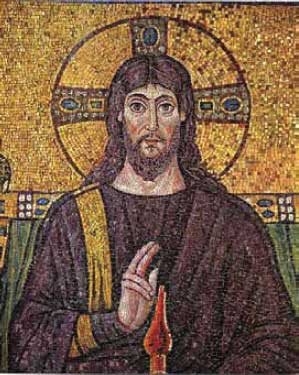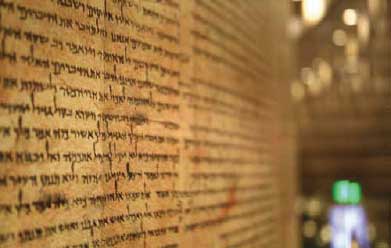Negative Aspects (an argument from silence—but a loud silence!)
Jesus (Yeshua) never belittled Scripture (as some modern critics do), or set it aside (as the Jewish leaders of His day had done with their oral traditions), or criticized it (although He criticized those who misused it), or contradicted it (although He rejected many interpretations of it), or opposed it (although He sometimes was free or interpretive with it), nor spoke in any way as “higher” critics do of the OT (Tanakh).
Christ’s Use of Scripture
As L. Gaussen has asserted,
We are not afraid to say it: when we hear the Son of God quote the Scriptures, everything is said, in our view, on their divine inspiration—we need no further testimony. All the declarations of the Bible are, no doubt, equally divine; but this example of the Savior of the world has settled the question for us at once. This proof requires neither long nor learned researches; it is grasped by the hand of a child as powerfully as by that of a doctor. Should any doubt, then, assail your soul let it behold Him in the presence of the Scriptures! (1894: 93).
1. He knew the Scriptures thoroughly, even to words and verb tenses. He obviously had either memorized vast portions or knew it instinctively: John 7:15.1
2. He believed every word of Scripture. All the prophecies concerning Himself were fulfilled,2 and He believed beforehand they would be.3
3. He believed the OT was historical fact. This is very clear, even though from the Creation (cf. Gn 2:24 and Mt 19:4–5) onward, much of what He believed has long been under fire by critics, as being mere fiction. Here are some examples of historical facts:
Luke 11:51—Abel was a real individual
Matthew 24:37–39—Noah and the Flood (Lk 17:26–27)
John 8:56–58—Abraham
Matthew 10:15; 11:23–24 (Lk 10:12)—Sodom and Gomorrah
Luke 17:28–32—Lot (and wife!)
Matthew 8:11—Isaac and Jacob (Lk 13:28)
John 6:31, 49, 58—Manna
John 3:14—Serpent
Matthew 12:39–41—Jonah (v. 42—Sheba)
Matthew 24:15—Daniel and Isaiah

A Sixth Century mosaic of Jesus at the Church San Apollinare Nuovo in Ravenna, Italy. Jesus knew the Old Testament Scriptures down to individual words and even verb tenses. He memorized it. He believed in the historical truth of the passages from the Old Testament that modern day critics openly deny…including the early chapters of Genesis and the books of Jonah and Daniel. Jesus also believed that the books of the Old Testament were written by the men whose names they bear: Isaiah, Jonah, Daniel…and that Moses was the author of the Pentateuch. Those who claim that Moses did not write the Pentateuch are openly contradicting what Jesus believed. Critics and their skepticism stand against Jesus Christ and what He believed and taught about the Scriptures.
4. He believed the books were written by the men whose names they bear:
Moses wrote the Pentateuch (Torah): Matthew 19:7, 8; Mark 7:10, 12:26 (“Book of Moses”—the Torah); Luke 5:14;16:29, 31; 24:27, 44 (“Christ’s Canon”); John 1:17; 5:45, 46;7:19 (“The Law [Torah] was given by Moses; Grace and Truth came by Jesus Christ”).4
Isaiah wrote “both” Isaiahs: Mark 7:6–13; John 12:37–41.
Jonah wrote Jonah: Matthew 12:39–41.
Daniel wrote Daniel: Matthew 24:15
5. He believed the OT was spoken by God Himself, or written by the Holy Spirit’s inspiration, even though the pen was held by men: Matthew 19:4–5; 22:31–32, 43; Mark 12:26; Luke 20:37.
6. He believed Scripture was more powerful than His miracles: Luke 16:29, 31.
7. He actually quoted it in overthrowing Satan! The OT Scriptures were the arbiter in every dispute: Matthew 4; Luke 16:29, 31.
8. He quoted Scripture as the basis for his own teaching. His ethics were the same as what we find already written in Scripture: Matthew 7:12; 19:18–19; 22:40; Mark 7:9, 13; 10:19; 12:24, 29–31; Luke 18:20.
9. He warned against replacing it with something else, or adding or subtracting from it. The Jewish leaders in His day had added to it with their oral traditions: Matthew 5:17; 15:1–9; 22:29 (cf. 5:43–44); Mark 7:1–12. (Destroying faith in the Bible as God’s Word will open the door today to a “new” tradition.)
10. He will judge all men in the last day, as Messiah and King, on the basis of His infallible Word committed to writing by fallible men, guided by the infallible Holy Spirit: Matthew 25:31; John 5:22, 27; 12:48; Romans 2:16.
11. He made provision for the NT (B’rit Hadashah) by sending the Holy Spirit (the Ruach HaKodesh). We must note that He Himself never wrote one word of Scripture, although He is the Word of God Himself (the living Torah in flesh and blood; see John, chapter 1). He committed the task of all writing of the Word of God to fallible men—guided by the infallible Holy Spirit. The apostles’ words had the same authority as Christ’s: Matthew 10:14, 15; Luke 10:16; John 13:20; 14:22; 15:26, 27; 16:12–14.
12. He not only was not jealous of the attention men paid to the Bible (denounced as “bibliolatry” by some), He reviled them for their ignorance of it: Matthew 22:29; Mark 12:24.
13. Nor did Jesus worship Scripture. He honored it—even though written by men.
The above leaves no room but to conclude that our Lord Jesus Christ considered the canon of Scripture as God’s Word, written by the hand of men.
Although some religious leaders profess to accept Scripture as “God’s Word,” their low view of “inspiration” belies the fact. They believe and teach that Scripture is, to a very significant degree, man’s word. Many of their statements are in essential disagreement with those of Jesus Christ. From the evidence of their books, we conclude that some Christian leaders are opposite to Christ in His regard for the authority, the inspiration, and the inerrancy of Scripture.
And now, the most important point.

Scroll of Isaiah from Qumran on display at the Israel Museum in Jerusalem. Jesus stood up in the synagogue at Nazareth and read from the scroll of Isaiah, saying: “The Spirit of the Lord is on me, because he has anointed me to preach good news to the poor. He has sent me to proclaim freedom for the prisoners and recovery of sight for the blind, to release the oppressed, to proclaim the year of the Lord’s favor,” and then declared, “Today this Scripture is fulfilled in your hearing” (Lk 4:18–19; 21b). Clearly, Jesus believed even the scroll copy He was reading from was the inspired and authoritative Word of God.
Jesus Christ Was Subject to Scripture
Jesus obeyed the Word of God, not man. He was subject to it. If some leaders’ views of inspiration were true, Jesus was subject to an errant, rather casually thrown-together “Word of Man.” Jesus would have been subject, then, to the will of man, not the will of God.
However, in all the details of His acts of redemption, Jesus was subject to Scripture as God’s Word. He obeyed it. It was His authority, the rule by which He lived. He came to do God’s will, not His own, and not man’s. Note how all of His life He did things because they were written—as if God had directly commanded. He fulfilled OT prophecies about Himself. The passages are found all over the OT. We cite here only a very few quoted in the NT: Matthew 11:10; 26:24, 53–56; Mark 9:12, 13; Luke 4:17–21; 18:31–33; 22:37; 24:44–47.
He Himself IS the Word of God. All the words from His lips were the Word of God (Jn 3:34). If He had desired, He could have written a new set of rules and they would have been the Word of God. But, He did not. He followed without question the Bible already penned by men. This is the sensible thing for every believer to do. May all who read this adopt Jesus’ attitude and become subject BOTH to Him as Living Word (living Torah) AND to the Bible as the infallible, written Word of God.
(This paper is an excerpt from Dr. Livingston’s MA thesis, A Critique of Dewey Beegle’s “Inspiration of Scripture.”)
Footnotes:
1. Jesus did not need to verify every passage in the Canon, or else we would find the whole OT requoted in the NT, which is unnecessary. He verified enough of it to assure us of complete approval of it all, including passages from all but a few books. Yet those also were in His canon. He did not refute any of them.
2. For a good summary of fulfilled prophecy, see Wenham 1953: 23–24.
3. See Matthew 26:53–56; Luke 24:25-27; John 5:39–47.
4. The Pentateuch is but one book in five parts. Meredith Kline’s Treaty of the Great King has demonstrated convincingly that it was written by one person as a unity. Therefore, Christ’s reference to any part of it as written by Moses infers He believed it was all written by Moses.
Bibliography
Gaussen, L.
1894 The Plenary Inspiration of the Holy Scriptures. Chicago: The Bible Inst. Colportage Association.
Kline, Meredith
1963 Treaty of the Great King: the Covenant Structure of Deuteronomy, Studies and Commentary. Grand Rapids: Eerdmans.
Wenham, J.W.
1953 Our Lord’s View of the Old Testament. London: Tyndale.
Dr. David Livingston is founder and former director of the Associates for Biblical Research. Involved in various Christian ministries for over 50 years, he currently serves as a member of ABR’s Board of Directors and writes articles defending the historical reliability and inerrancy of Scripture. He and his wife Esther reside in Lititz, PA.